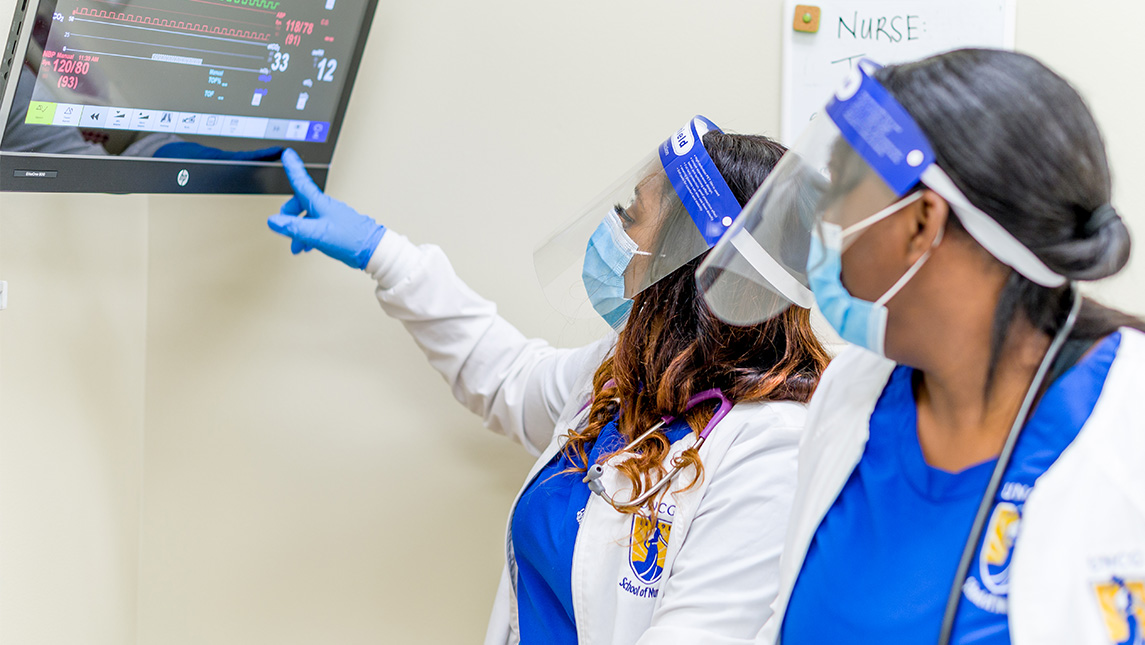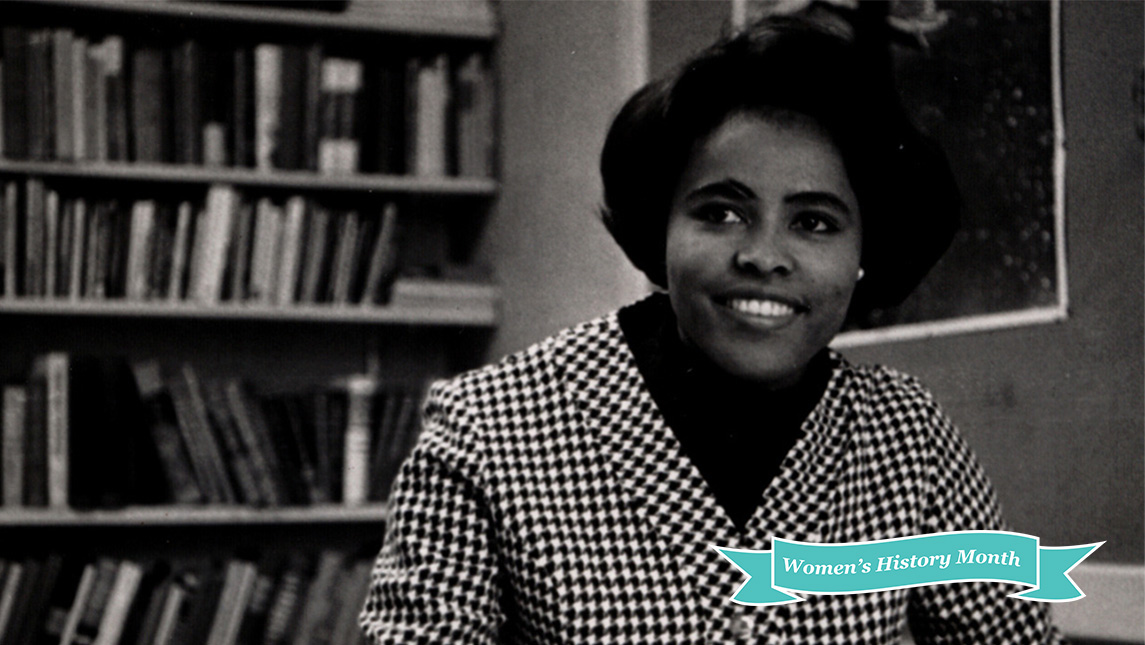While growing up in Pleasant Hill, North Carolina, with her four siblings on her grandfather’s peanut and cotton farm, Ernestine Brown Small had many Black role models, among them teachers, businessmen, and doctors.
But it was when a nurse visited her one-room segregated elementary school to give students immunization shots that Small felt the call to become a nurse. She recalled that the smell of rubbing alcohol on her arm inspired her career decision.
Preparing For Her Purpose
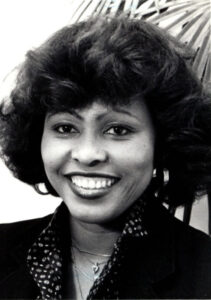
Before Small’s endeavors at UNC Greensboro, she was accepted into the Tuskegee Institute in Alabama, where she was inducted into the Alpha Kappa Mu Honor Society. She participated in the Civil Rights Movement in the early 1960s, marching through downtown Tuskegee with other students and staff, before graduating with her Bachelor of Science in Nursing (BSN) in 1963.
She went on to become a registered nurse at Moses Cone Hospital while it was still segregated in Greensboro. The Black staff ate in the hospital kitchen, but Small was asked by the administration to be the first African American to eat in the hospital cafeteria for White staff within her first year. Small said the cafeteria was desegregated that day.
In her second year at Moses Cone Hospital, she decided to go to graduate school at Catholic University of America in Washington, D.C. for her Master of Science in nursing. In Spring 1967 she was the only African American to graduate with a Master of Nursing from Catholic University.
Instrument For Change
As new job opportunities opened for Small, she applied to be an instructor at UNCG, having heard about the development of a baccalaureate nursing program in the mid-1960s. She had attended Black and Segregated schools in the past and thought it would enhance her career to be a part of something new. At the time, not aware that she would be the University’s first Black faculty member.
After being interviewed and hired by Dr. Eloise Lewis, the founding dean of the School of Nursing in 1967, Lewis told Small that she had broken the University’s faculty color barrier at only 24 years old. “I’ve always believed that I was an instrument for change and that I was where I was supposed to be,” she said.
Within her 24 years at UNCG, she taught medical-surgical nursing courses as an educator and advised the Neo-Black Society and the Nu Rho chapter of the Alpha Kappa Alpha sorority.
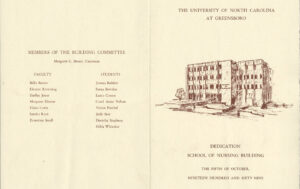
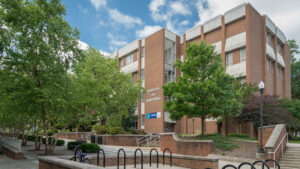
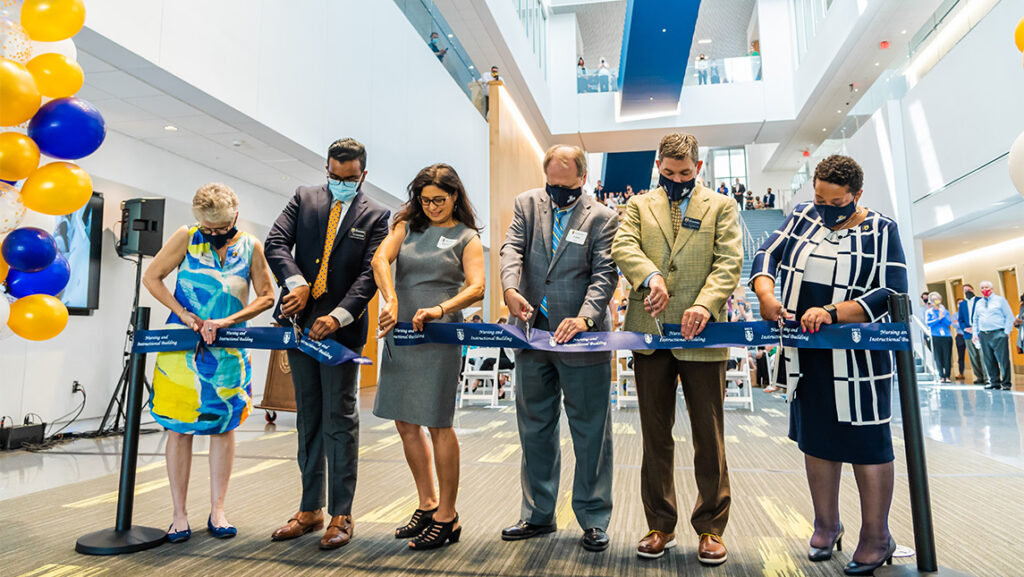

Small worked with many African American students, faculty, and staff members to promote a promising experience at UNCG. LaVonne Fisher ’70 BSN, ’82 MSN, a member of UNCG’s School of Nursing Advisory Board and a close friend of Small, says Small was the reason she became a nurse. Small made Fisher feel confident in her capability to perform well in the nursing program.
Small was the third recipient of UNCG’s Martin Luther King Jr. Service Award in 1989. Outside of working full-time at UNCG, she became the first African American president of the North Carolina Nurses Association from 1979-1981, as well as serving on the North Carolina Board of Nursing from 1982-1985. While serving as a leader and mentor to others and raising her own children, she continued to pursue her education. She earned a Family Nurse Practitioner certificate from the University of Virginia and a Doctor of Education from NC State University.
Legacy in The Works

Small, the first of many, carried her nursing education legacy to other institutions, including North Carolina Central University and Winston-Salem State University. Before she retired, she worked as a nurse education coordinator at the Shelby County Health Department in Memphis, Tennessee.
Being an activist, mentor, and leader, Dr. Ernestine Small opened doors for many more at UNCG.
Dr. Debra Barksdale, UNCG School of Nursing’s first African American dean, said it was giants such as Small who paved the way as a builder, uniter, and agent for change. In similar ways, Barksdale’s push to further her career resulted in a lasting impact across the nursing profession.
UNCG Associate Professor of Higher Education, Dr. Delma Ramos, focuses her attention on advocating for transfer students motivated by her own experience as a community college transfer graduate. Selected to be a part of the UNC System Faculty Fellowship Program, Ramos said the fellowship allows her to extend the work she does for transfer students at a greater multitude.
Dr. Jeanette Wade, the director of UNCG’s new Human Health Sciences program and a medical sociologist with a Black feminist perspective, shares what mentoring students means to her. She said, “I get to pay that forward. I get to be the person to see the light in people that other folks may not see the light in. I love that about my job.” Interested in understanding how to better health care for black women, Wade applies her findings to the community.
Story by Lauren Segers, University Communications
Photography by Sean Norona, Martin W. Kane, and Jiyoung Park, University Communications
Additional photography courtesy of the Martha Blakeney Hodges Special Collections and University Archives at the University Libraries
